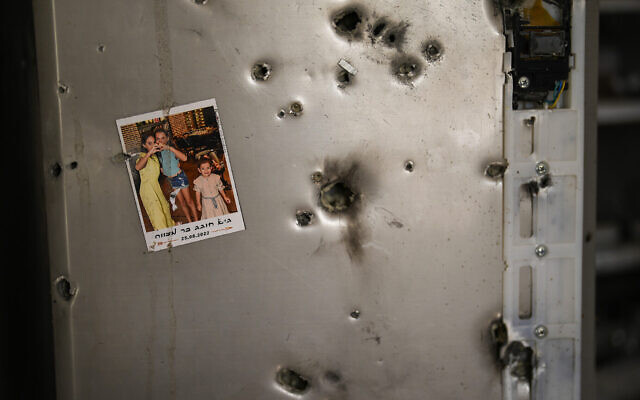Public Trust in Gov’t Scrapes Bottom Amid Criticism of Inadequate War Response
Though Israel now has one of its largest cabinets ever, few of its 39 ministers are serving the country’s wartime needs, with most power centralized in Netanyahu.

Nineteen days into a war triggered by Hamas’s brutal Oct. 7 terror attack on southern Israel, with the nation reeling from the horrific killings of some 1,400 people and abduction at least 224 more, and as the Israeli military prepares for a ground offensive in Gaza and potential escalation on the northern border, there is a new whisper of unity in Israeli society.
From coffeeshops to the front lines, many Israelis say they are unified on two things: they are convinced of the need to uproot Hamas, and they do not trust their own government to oversee the process.
That adds up to a deeply troubling, even terrifying scenario for the more than 350,000 reservists mobilized since the outbreak of war, the 150,000-180,000 standing army soldiers they are joining, and an Israeli society that will sacrifice to support them.
In media interviews, in (limited) demonstrations and in private conversations, many voice a crisis of faith citing the compound catastrophic failures of both government and security chiefs: first, in not preventing Hamas’s terrible attack in the first place; second, in the unbearably slow response of the security forces to the atrocities, which left unarmed civilians to fend for themselves in the face of marauding killers for long hours; third, in the slow and clumsy reservist call-up process that exposed shocking shortages in basic military equipment; and finally in the government’s sluggish civil response in support of those displaced by the fighting.
Such sentiments are backed up by numbers: New polling data shows that Israelis’ trust in government is at a 20-year low of 18 percent. Only 20.5 percent of Jewish Israelis and 7.5 percent of Arab Israelis polled by the Israel Democracy Institute in the aftermath of Hamas’s attack said they had trust in Prime Minister Benjamin Netanyahu’s cabinet. (In June, these populations polled at 28 percent and 18 percent, respectively.)
Faith in the security forces and in the media, by contrast, has increased, despite the military’s central role in the failure. Jewish Israelis’ trust in the Israel Defense Forces rose by 2.5 percent to 87 percent and Arab Israeli trust similarly increased, by 2 percent to 23 percent.

At least seven senior Israeli officials have publicly taken blame for the state’s failure to protect its citizens, including the IDF chief of staff, the defense minister, the head of the Shin Bet, and the head of the National Security Council. Former prime minister Naftali Bennett, who has been out of office for more than a year, has said he has a share of the blame. Notably missing is Netanyahu, who has also failed to interact with the public beyond videos, public appearances with visiting world leaders at which he does not take questions, and PR photo ops with the troops.
But blame-taking is not Israelis’ biggest gripe. Rather, to many, the government has exacerbated its Oct. 7 failure by inadequately responding to the aftermath.
On Sunday, the mayor of the rocket-blasted city of Netivot, considered a traditional stronghold for Netanyahu’s Likud party, sent the prime minister a letter accusing the government of “abandoning” his municipality. It was the latest in a growing chorus of criticism that has cracked even Likud’s famously loyal base.
It took Netanyahu a week to first visit attacked communities, and eight days to meet with families of Hamas’s hostages. The process for negotiating their release remains opaque, even after four were released by Hamas in recent days, with the terror group citing “humanitarian” considerations. Israel’s involvement in those releases is reported to have been minimal.

At the same time, the coalition’s clumsy handling of hostages’ families has also received intense attention, with many relatives complaining they have had hardly any contact from government representatives.
In the first chaotic days following the disaster, civil society and private individuals stepped into the vacuum, organizing open-source and cellphone-based tracking of missing family members, with hopes of finding clues as to their current or last-known whereabouts.
With reports continuing to flow in about the Israel Defense Forces’ shortages of proper equipment to protect its reservists, Israelis and Diaspora Jews are filling the gap, pumping money, bulletproof vests and other needed supplies into the army units.
On the civil front, the government’s anemic response to the immediate needs of what has now grown to over 200,000 internally displaced Israelis has been stop-gapped by volunteers arranging clothing, food, and basic necessities.



comments